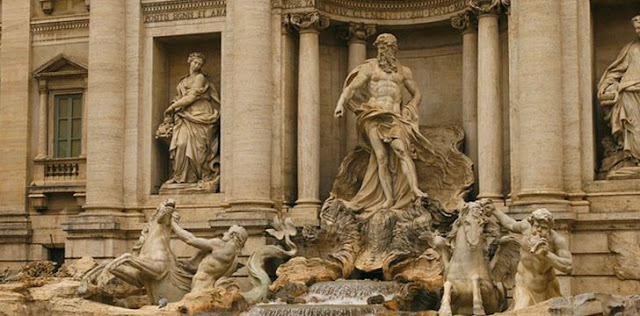
In Ancient Rome, sport was popular and widespread, thrilling and entertaining. The Roman concept of sport was completely different from that of their Greek neighbors and their Olympic Games.
Sport to the Romans was a spectacular means of bloody entertainment, as opposed to the Athenians, where it was seen in a more spiritual way. It was aimed at the moral elevation and glory of the athletes themselves.
The sporting events in ancient Greece were primarily bloodless contests. Athenians saw physical sport as a means of pursuing an ideal fusion between external beauty and nobility of the mind.
The Roman Dominance
As a result of Roman influence, the sacredness of sports – a common feature of gymnastic activity in Greece – was gradually replaced by an entertaining show and the desire for a bloody-thirsty thrill.
Although the sports practiced in Rome also included those from the well-established Greek Olympics, the only sports that gained unanimous popularity were the most violent ones, such as boxing and wrestling.
Particularly appreciated by the Romans was Pankration, a combat sport of Greek origin that consisted of a mix between wrestling and boxing.
Formally introduced to the Greek Olympic Games in 648 AD, Pankration was a total combat sport in which all techniques were allowed, except biting and eye gouging, which was severely punishable via whipping.
The love of violent sporting competition in Ancient Rome can be easily found in the immense popularity of gladiators throughout the Roman population. This popularity can be seen from the many large amphitheaters around the world, including Italy, the rest of Europe and even the Middle East and Africa.
An Athenian Influence on Rome
Before Greece was conquered by Rome in 186 AD, Roman General Marco Fulvio Nobiliore introduced Greek gymnastic games into Rome. Clashing with Roman society, this was seen as immoral, since the Romans did not tolerate the nudity of athletes and above all, because these games were empty of any meaningful military training.
The Senate did not appreciate Greek sport and deeply opposed the emperors Caligula and Nerone, who were fascinated by Greek civilization and who personally took part in the games.
The Influential Power of Sport – Then and Now

The portrayal of Ancient sporting idols had changed, consequently affecting the popularity of certain sports and preferences of the people. A Greek hero, which was portrayed as a harmonious athlete was replaced in Rome, by a completely different, more violent and certainly less graceful figure.
Mosaics from the Baths of Caracalla (now preserved in the Vatican Museums) depict Roman athletes in a vulgar yet masculine pose, very different from the elegantly depicted statues of classical Greece.
Fast forward to current times, today’s sporting idols are portrayed everywhere. Athletes monetize and earn profits from their influencing power, as they are used to communicate messages to the public.
Athletes have significant leverage because they are one of the few groups of people with the most potential to attract mass consumer attention and influence decisions.
Sporting icons are able to be utilized in multiple channels of influencer marketing, including affiliate marketing, television and magazine advertising and sponsorships.
People on the other side, are clearly enjoying the thrill that comes from watching and betting on different sporting disciplines. If you take the time to find the most popular betting sites online for instance, you’ll see how popular and improved betting has become over time. Some sports that are popular nowadays for placing bets like horse racing, date back to the Ancient Romans times.
Sports that we commonly enjoy with the Ancient Romans today include:
- Running
- Discus
- Javelin
- Shotput
- Horse racing
The Romans had many various forms of ball playing, similar to handball. Dice games, board games and table games were popular games in which women were prohibited from playing.
Horse racing back in the day consisted of chariot races, which took place in grand buildings with a rectangular plan, with the sides curved at the hemicycle. The race ended after each competitor had covered seven laps and crossed the line.
The influential power of sports have spread through civilization after civilization. From the Greeks, the thrill of fun bets, dice and simple table games spread to ancient Rome where it was accepted and legalized.
Romans would bet on the gladiator games, and even when this ancient sporting event eventually came to an end, gambling survived and continued to spread to other kingdoms.
In Medieval times it continued to exist and grow as new sporting events were introduced to the world. Up until today, where it is affiliated with the horse racing industry.




0 Comments